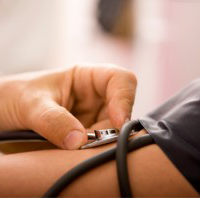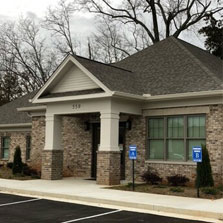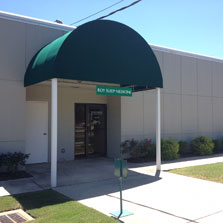Heart Failure and Sleep
 Although there are different types of heart failure, the problem is essentially the same in each type; The heart’s pumping activity is not sufficient to satisfy the body’s demands.
Although there are different types of heart failure, the problem is essentially the same in each type; The heart’s pumping activity is not sufficient to satisfy the body’s demands.
Heart failure is responsible for about 300,000 deaths each year, and this number appears to be increasing. About 2% of the US population, and 10% of all patients over 65 years old, has heart failure. Studies have suggested that up to 60% of these patients have sleep apnea.
Patients with heart failure are frequently overweight, another independent risk factor for sleep apnea. If the right side of the heart is affected, the increased pressure in the veins can worsen sleep apnea. Studies have strongly suggested that treatment of sleep apnea in these patients can improve the heart’s function!
Insomnia is also more common in patients with heart failure.
If you have heart failure and you either snore chronically or are sleepy during the day, make an appointment to see Dr. Roy.
References:
- American Heart Assn: Heart disease and Stroke Statistics – 2004 update.
- Eur J CardiovascNurs. 2005 Sep;4(3):183-97
Heart Disease / Heart Attack and Sleep Apnea
Studies have suggested that untreated sleep apnea accelerates heart disease. This may be due to the frequent drops in blood oxygen levels during episodes of poor breathing during sleep. A clinical study showed that up to two-thirds of those with sleep apnea have significant heart disease. Over the last 25 years, numerous studies have consistently showed that over a third of patients with heart disease have sleep apnea and that sleep apnea may enhance the risk of having a heart attack.
Why do so many patients with sleep apnea have heart disease?
In those affected with sleep apnea, patients have episodes of poor breathing during sleep. During these episodes, the body undergoes a tremendous amount of stress. This is for multiple reasons. First, oxygen levels drop repetitively during sleep in patients with sleep apnea. This results in discharges of adrenaline released from the brain. Adrenaline makes the heart work harder by speeding it up. Second, during apnea episodes, it appears that the heart has an increased need for oxygen, despite its reduction in the blood. Third, there is increased inflammation in the body in patients with sleep apnea due to the release of certain molecules into the bloodstream, leading to plaque deposits and smaller coronary blood vessels in the heart. These may contribute to a patient having a heart attack.
What if I’m not that sleepy but I have heart disease? Could sleep apnea be a problem?
Yes! Many patients with heart disease are not sleepy, yet they still have significant sleep apnea. Despite the lack of sleepiness, the spouse or bed-partner will hear loud snoring or will see the patient struggle for air during the night. Coupled with the finding that patients almost never realize just how sleepy they really are at any given time, sleep apnea may go undiagnosed. This leads to continued acceleration of heart disease and often earlier death. If you or someone in your close family has heart disease and you are told you snore frequently, you may be at risk for a heart attack earlier than you think.
Make an appointment to discuss your condition with Dr. Roy.
References:
- Circulation 1989;79:733-743
- Cardiology 1996;87:492-496
- Principles and Practice of Sleep Medicine 4th Ed, table 101-1 page 1204
Sleep Apnea and Hypertension (High Blood Pressure)
Do sleep disorders cause hypertension?
Absolutely! The relationship between sleep apnea and high blood pressure is well-documented. On average, it takes about 5 years of untreated sleep apnea to result in statistical increases in blood pressure. Unfortunately if your blood pressure has been low in the past, small changes in your pressure may not be detected as significant by your doctor. The Joint National Commission 7 recommends that when underlying causes of hypertension are investigated by your doctor, sleep apnea must be considered as a possibility! Hence, one of the most common identifiable and treatable causes of high blood pressure is sleep apnea.
Other statistics include:
– studies have suggested that 96% of all men (and about 2 out of every 3 women) who have difficult to control hypertension despite 3 blood pressure medications have sleep apnea
– About one half of patients who have essential hypertension have sleep apnea.
Why does blood pressure go up in patients with sleep apnea?
It is thought that OSA causes high blood pressure because of a patient’s inability to breathe during sleep. The body’s response to this is a release in adrenaline during the poor breathing episodes, causing constriction of the blood vessels, leading to higher blood pressure. Unfortunately, studies have also shown that people with untreated OSA are likely to gain weight. Obesity also often results in high blood pressure, independent of sleep apnea.
Studies have shown that by effectively treating sleep apnea, blood pressure improves.
If you are on multiple blood pressure medications or you are young and have recently been diagnosed with hypertension, and you snore or are sleepy during the day, make an appointment to see Dr. Roy to discuss if a sleep disorder is contributing to your elevated blood pressure.
References:
- www.nhlbi.nih.gov/guidelines/hypertension/phycard.pdf
- www.ncbi.nlm.nih.gov/pubmed/11725173?dopt=Abstract
- www.aafp.org/afp/2002/0115/p229.html
Atrial Fibrillation and Sleep
Atrial fibrillation, also referred to as an “irregularly irregular” heart rhythm, can be continuous or may come and go. Sometimes, it may occur only during sleep. In a patient with atrial fibrillation, the part of the heart involved with initiating the electrical activity of the heart contraction is malfunctioning. The faulty electrical system prevents the heart from beating in a consistent pattern. As a result, the blood from the top part of the heart may not be pumped properly into the body. This could lead to a risk of blood clots in your heart, which can break off and cause stroke, pulmonary hypertension, or kidney failure.
Studies have suggested that atrial fibrillation may be more common during sleep. Patients with sleep apnea have higher-than-normal levels of adrenaline in their bloodstream, lower oxygen levels, and higher stresses upon their hearts. These all can contribute to a higher risk of emergence of atrial fibrillation.In addition, untreated sleep apnea results in a higher chance of recurrent atrial fibrillation in patients who have undergone successful ablation or medical therapy to convert their atrial fibrillation.
If you have atrial fibrillation and you either snore or are sleepy during the day, contact Dr. Roy for an appointment to discuss if a sleep disorder may be playing a role in your heart rhythm.









KEEP IN TOUCH WITH US